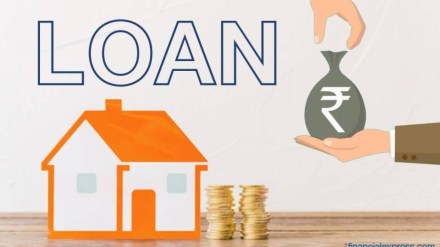Ahead of the Interim Budget to be presented next month, property developers are hoping for lower interest rates on affordable housing loans and lower taxes on such properties to boost demand in the segment.
The realty sector also expects the government to increase the cap on affordable housing units from Rs 45 lakh to a higher bracket depending on the city size. They also want the carpet area cap for such properties be increased from the current 60 square metre in metro cities and 90 sq m in other cities to higher limits.
The affordable housing segment has been facing a double whammy in the last few years. While sales have taken a hit due to high loan interest rates, developers have also been moving away from the segment due to a surge in the sales of premium properties, high input costs and lower margins in the segment.
The category saw its share in overall sales decline to nearly 20% in 2023 from over 30% in 2022 and nearly 40% in the period before the pandemic. In the top 7 cities too, its share fell to 18% in 2023 from nearly 40% in 2019, according to Anarock Property Consultants.
Sriram Mahadevan, managing director at Joyville Shapoorji Housing, a unit of Shapoorji Pallonji Real Estate, said granting industry status for projects focusing on 50% units under Rs 45 lakh and Rs 75 lakh in Mumbai Metropolitan Region is important. “Moreover, we urge the government to consider industry body Naredco’s (National Real Estate Development Council) proposal for a Rs 50,000-crore fund and incentives like GST input tax credit and rental housing benefits,” he said.
Besides, a prudent cut in stamp duty will greatly reduce the overall cost burden on homebuyers, Mahadevan added.
Murali Malayappan, chairman and managing director at Shriram Properties, said the government should eliminate GST for affordable housing to give a boost to the sector. “Affordable housing faces a tax burden ranging from 25% to 30%. Moreover, developers are obligated to pay an 18% GST on construction. Given the substantial share it occupies in the market, the government should address challenges such as the 18% GST on construction in the Budget,” he said. The Centre should also urge state governments to eliminate stamp duties and establish a unified agency for streamlined approval processes, he added.
Sandeep Runwal, president at Naredco Maharashtra, said Naredco seeks an increase in the cap for interest rate deduction under section 24 (b) from Rs 2 lakh to Rs 5 lakh per annum. “Tax relief for such projects could accelerate investment and help achieve the government’s ambitious ‘Housing for All’ goal. Further expectations include tax benefits for first-time homebuyers and the reintroduction of GST with an input tax credit on under-construction properties,” he said.
Boman Irani, national president at property developers body Credai (Confederation of Real Estate Developers Associations of India), said the deduction under section 80C should be allowed to individuals in respect of the cost of their first self-occupied house property up to Rs 50 lakh. Credai also recommends the definition of affordable housing be revised as “a unit with 90 sq m RERA carpet area in metros cities and 120 sq m in non-metros without a cap on cost of the unit,” he added.
Sarosh Amaria, managing director at Tata Capital Housing Finance, said: “We need to sharpen our lens on adjusting the qualifying cost of properties within cities’ affordable housing segment. The average cost of home per square feet in Mumbai is over Rs 5,000 and a budget of up to Rs 45 lakh cannot be appropriate for a tier 1 city like Mumbai or Delhi, which has the scope to touch levels of around Rs 75 lakh.”
Deepak Patkar, MD and Chief Executive Officer, SMFG Grihashakti, said measures such as increased limits for tax deductions for home loans, implementation of interest subsidy scheme for urban housing and substantial increase in amount to categorise them under affordable homes — especially in metros and larger cities — could potentially be game changers for the industry.
Anarock chairman Anuj Puri also said the government needs to take a hard look at adjusting the qualifying cost of properties within cities’ affordable housing segment. Though the units’ defined size of 60 sq m is reasonable, the prices of up to Rs 45 lakh make them unaffordable to a huge share of the target clientele.
